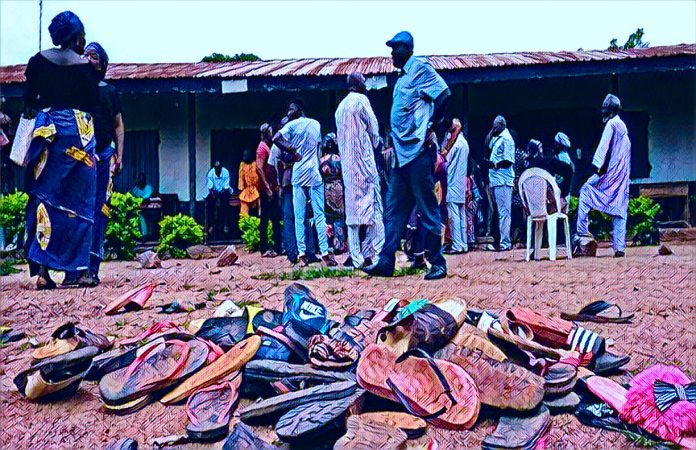KEY POINTS
- Armed attackers abducted over 50 women and children in Kafin Dawa, Zamfara State, intensifying security concerns in northwest Nigeria.
- Witnesses described the attack as terrifying, with gunmen moving house to house, taking residents at gunpoint.
- Authorities have deployed additional security forces to locate captors and ensure the victims’ safe return.
Numerous women and children were abducted in a bold assault by armed individuals in Kafin Dawa, Zamfara State, northern Nigeria, on Sunday, according to police and local residents.
Witnesses reported that the attackers, equipped with assault rifles, moved from house to house taking residents.
More than 50 abducted in attack
Hassan Ya’u, a local who managed to escape, said more than 50 women and girls were taken, including his younger sister.
Another resident described the attack as terrifying, with gunshots echoing through the village.
Local authorities confirmed the incident, noting that additional security forces have been deployed to the area to address the situation.
Escalating kidnapping crisis
Kidnapping for ransom has surged in northwest Nigeria, where armed factions, often called bandits, take advantage of extensive poverty and joblessness.
These groups have conducted many large-scale kidnappings, especially focusing on schools and rural areas.
In March, gunmen abducted over 130 students in Kuriga, northwest Nigeria. The students were released weeks later after negotiations.
Historical context
Mass abductions in Nigeria first gained global attention in 2014 when Boko Haram kidnapped 276 schoolgirls in Chibok, Borno State.
Many of those girls remain missing or were forced into marriage with militants.
Since then, at least 1,400 children have been abducted across the country, with armed groups targeting schools and rural communities alike.
Government response
Nigerian authorities have ramped up military operations against the groups and have also started negotiations to secure the release of captives.
However, oppositions contend that addressing socio economic challenges fueling this crisis is better than using kinetic force to insecurity.
Nevertheless, opponents argue that addressing the core economic and social issues fueling the crisis is crucial.
The attack in Zamfara underscores the persistent insecurity in northwest Nigeria, where communities remain vulnerable to armed groups.
Officials promised to locate the captors and ensure the victims’ safe return.



